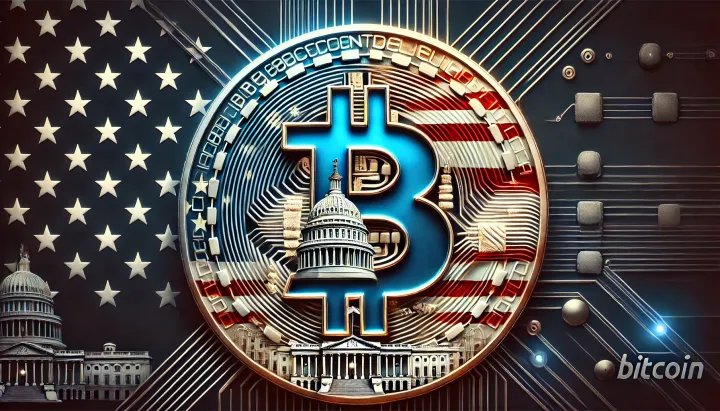Paul Atkins’ Nomination as SEC Chair: Paving the Way for U.S. Digital Asset Reform
The December 6, 2024 episode of the Unchained podcast features Cody Carbone discussing the implications of Paul Atkins' nomination as SEC Chair under President Trump.

- My 'briefing notes' summarize the content of podcast episodes; they do not reflect my own views.
- They contain (1) a summary of podcast content, (2) potential information gaps, and (3) some speculative views on wider implications.
- Pay attention to broadcast dates (I often summarize older episodes)
- Some episodes I summarize may be sponsored: don't trust, verify, if the information you are looking for is to be used for decision-making.
Summary
The December 6, 2024 episode of the Unchained podcast features Cody Carbone discussing the implications of Paul Atkins' nomination as SEC Chair under President Trump. Atkins’ appointment as SEC Chair could reshape U.S. digital asset regulation. His experience in securities law and longstanding advocacy for reducing enforcement-driven policies signal a potential shift toward industry-friendly regulation. His tenure may strengthen collaboration between the SEC, CFTC, and Congress while fostering clearer regulatory guidelines for digital assets, including token registration and stablecoin oversight.
Take-Home Messages
- Bitcoin’s Scarcity and Adoption: Bitcoin’s fixed supply and desirability position it as a superior store of value over traditional assets like real estate.
- Impact of Fiat Liquidity: Fiat-driven asset inflation deepens inequality, presenting Bitcoin as a viable alternative in preserving wealth.
- AI’s Creative Disruption: AI will dominate art creation within a decade, challenging perceptions of value tied to human creativity.
- Generational Investment Shifts: Younger investors are prioritizing Bitcoin over conventional assets, reflecting a strategic adaptation to evolving financial realities.
- Storytelling as Value Driver: From Bitcoin to art, storytelling shapes the perception and sustainability of value in modern markets.
Overview
Paul Atkins’ nomination as SEC Chair signals a potential shift in U.S. digital asset policy. His track record includes advocating for a reduced enforcement agenda and emphasizing industry engagement through transparent, rules-based guidance. As a former SEC Commissioner and current co-chair of the Digital Chamber’s Token Alliance, he brings extensive regulatory experience and deep industry knowledge.
Atkins’ approach is expected to focus on several key areas, including token registration, crypto exchange compliance, and reconsidering ongoing SEC enforcement cases. His familiarity with SEC processes and working relationships with pro-crypto commissioners like Hester Peirce and Mark Uyeda could accelerate policy implementation.
Collaboration between the SEC and CFTC also appears likely under Atkins’ leadership, with both agencies potentially issuing joint regulatory guidance on digital assets. This could clarify jurisdictional boundaries while reducing the regulatory burden on industry participants.
The legislative outlook also appears favorable. With a Republican-controlled Congress, stablecoin regulation could advance quickly, while comprehensive market structure reforms may be deferred to SEC-led rulemaking. Carbone further explored the potential appointment of a federal "Crypto Czar," signaling even broader policy coordination at the national level.
Stakeholder Perspectives
- Crypto Industry Leaders: Optimistic about reduced enforcement actions and clearer regulations.
- Financial Regulators: Expect improved inter-agency collaboration and clarified jurisdictional roles.
- Investors: Anticipate reduced market uncertainty and greater investment stability.
- Congressional Lawmakers: May rely on Atkins for technical input while drafting crypto-related legislation.
Implications
Paul Atkins’ nomination could fundamentally reshape U.S. digital asset regulation. His expected focus on reducing enforcement actions, establishing clearer token issuance guidelines, and fostering regulatory dialogue could strengthen the U.S. crypto industry.
This policy reset may reduce compliance costs for crypto businesses and attract greater institutional investment. However, successful implementation will depend on Atkins' ability to manage internal SEC dynamics, coordinate with Congress, and address legacy enforcement cases. His leadership could position the U.S. as a global leader in digital asset regulation.
Future Outlook
With Atkins at the helm, regulatory priorities are likely to shift toward industry engagement and collaborative policymaking. Early action on token issuance, crypto exchange compliance, and inter-agency coordination with the CFTC could set the stage for broader legislative reforms.
While stablecoin regulation appears achievable by 2025, comprehensive market structure legislation may require a multi-agency effort. Atkins’ appointment could signal the beginning of a more predictable regulatory environment, fostering greater industry innovation and investor confidence.
Information Gaps
- How can the SEC establish a framework that balances enforcement with proactive regulatory guidance? Balancing enforcement with regulatory guidance is critical for ensuring compliance while fostering innovation. A comprehensive framework could provide legal certainty while reducing enforcement costs.
- What global regulatory models could the U.S. adopt to streamline crypto asset oversight? Studying international best practices could help align U.S. regulatory standards with those of other leading markets. This could simplify cross-border crypto transactions and boost global market confidence.
- What specific barriers have prevented the adoption of the Token Safe Harbor proposal since its introduction? Understanding regulatory, legal, and political roadblocks is essential for evaluating whether the Token Safe Harbor proposal can be implemented effectively.
- How might an administration’s political ideology shape the regulatory priorities for digital assets? Political shifts can significantly affect policy development. Analyzing how political ideology shapes legislative priorities could clarify the future direction of U.S. crypto regulation.
- What types of legal disputes could arise from halting or reversing existing enforcement actions? Reviewing legal risks linked to enforcement reversals could guide the SEC in minimizing litigation costs while advancing its regulatory agenda.
Broader Implications for Bitcoin
U.S. Regulatory Framework Evolution
Paul Atkins’ expected regulatory reset could position the U.S. as a leading jurisdiction for digital asset policy. Clearer guidelines on token issuance and exchange operations may reduce regulatory arbitrage and encourage global crypto firms to establish U.S. operations. This could strengthen the country’s financial competitiveness.
Institutional Market Confidence
Stable regulatory conditions under Atkins could reduce legal risks for institutional investors. If enforcement-driven uncertainty diminishes, investment funds, pensions, and hedge funds may increase exposure to Bitcoin and other digital assets, boosting liquidity and long-term price stability.
Technological Integration and Innovation
With a less restrictive regulatory environment, blockchain innovation could accelerate. Developers and entrepreneurs may launch projects with fewer compliance concerns, fueling growth in decentralized finance (DeFi), tokenized assets, and Bitcoin-focused financial services, such as custody and payment solutions.
Inter-Agency Policy Coordination
Enhanced SEC-CFTC collaboration could resolve jurisdictional disputes, allowing the U.S. to adopt a unified regulatory model. This could streamline compliance for businesses operating across asset classes, reducing legal complexity and fostering more significant investment in cross-chain Bitcoin solutions.
International Competitive Edge
By embracing a forward-looking digital asset policy, the U.S. could outpace competing regulatory hubs like Switzerland, Singapore, and the UAE. A robust policy environment could encourage international crypto businesses to relocate, further legitimizing Bitcoin in global finance.
Geopolitical Implications
As Bitcoin becomes increasingly central to digital asset policy, U.S. regulatory leadership could shape global standards. If the U.S. prioritizes innovation-friendly policies, Bitcoin could gain broader acceptance as a reserve asset among nation-states, reshaping global economic power dynamics.



Comments ()